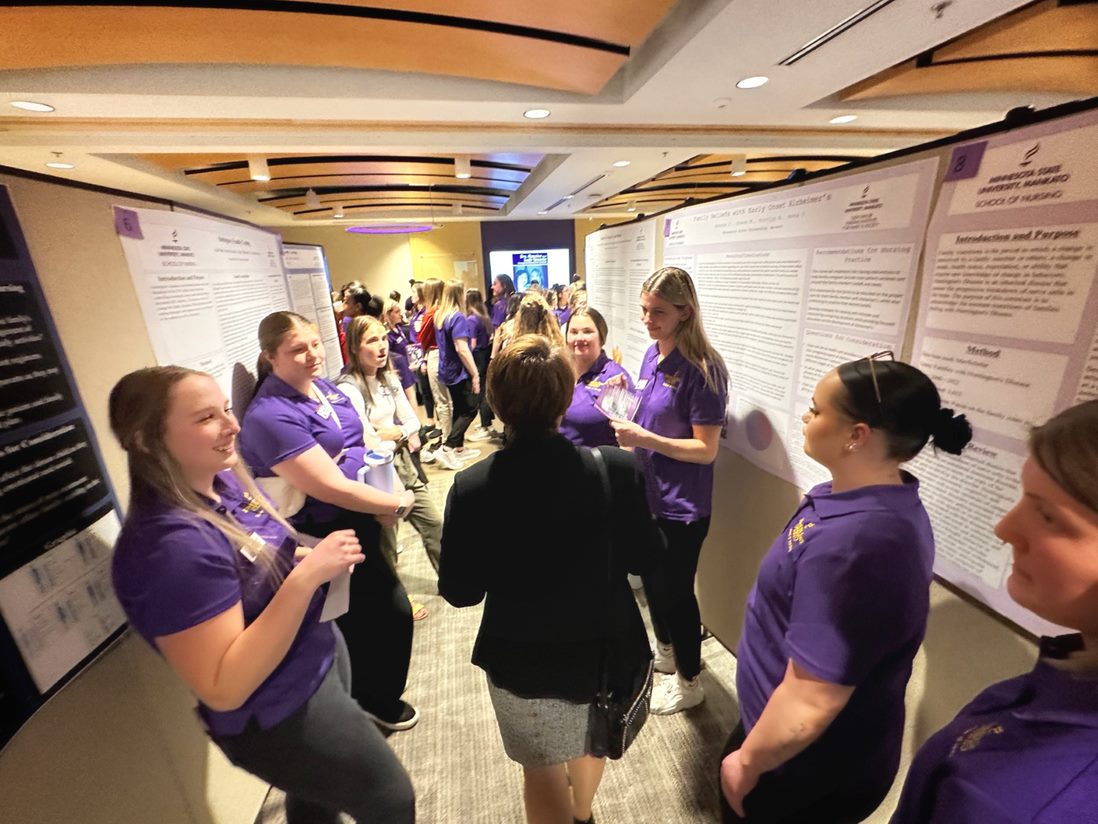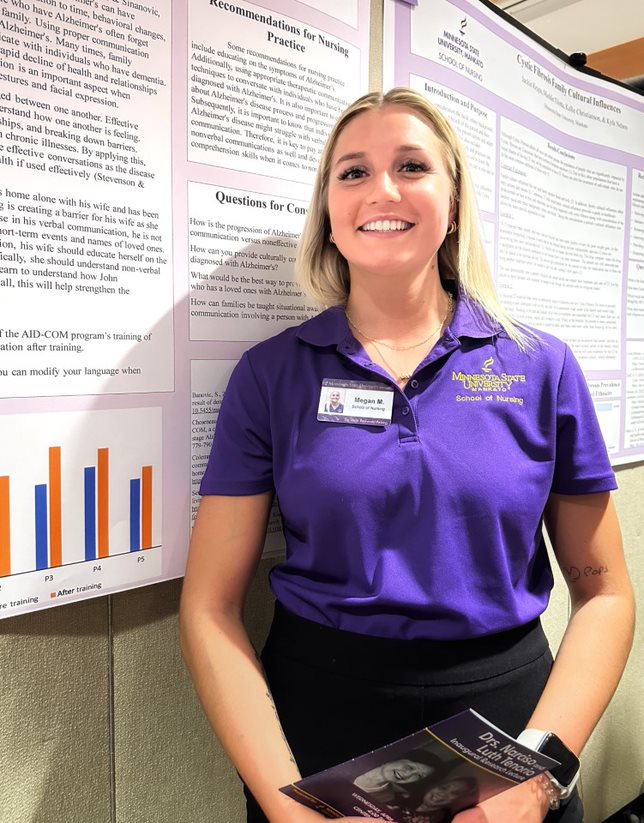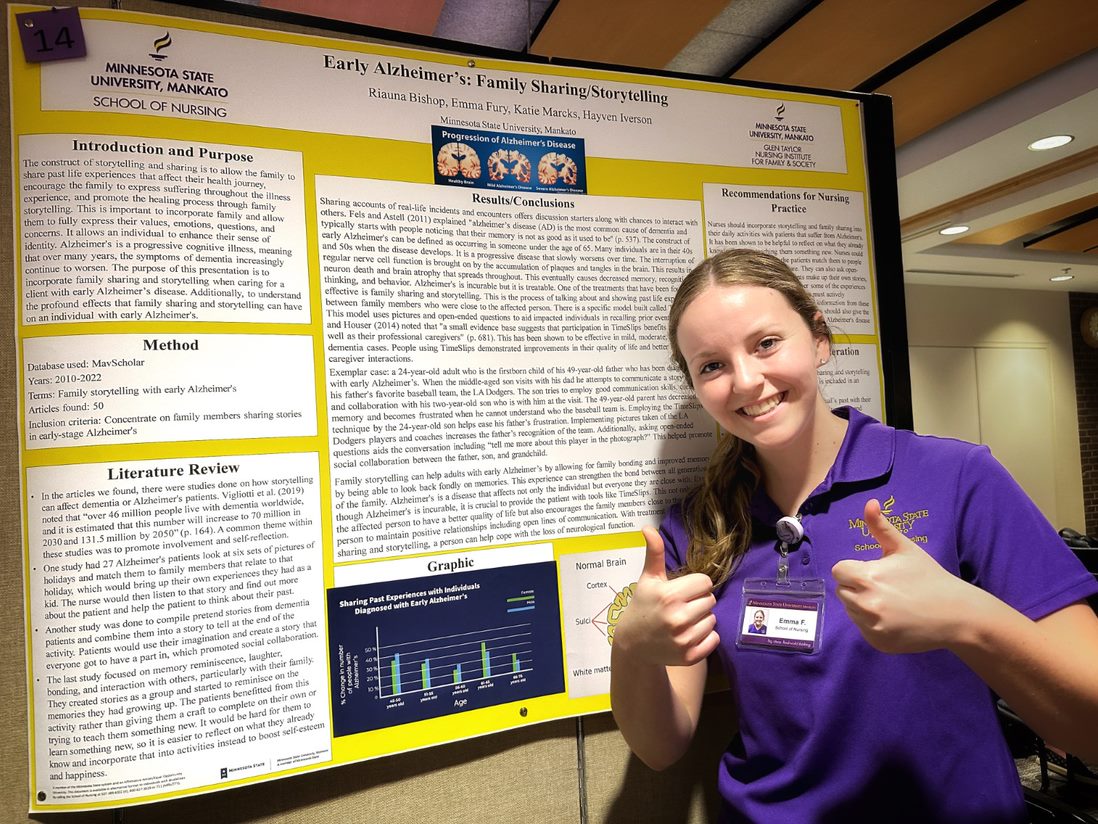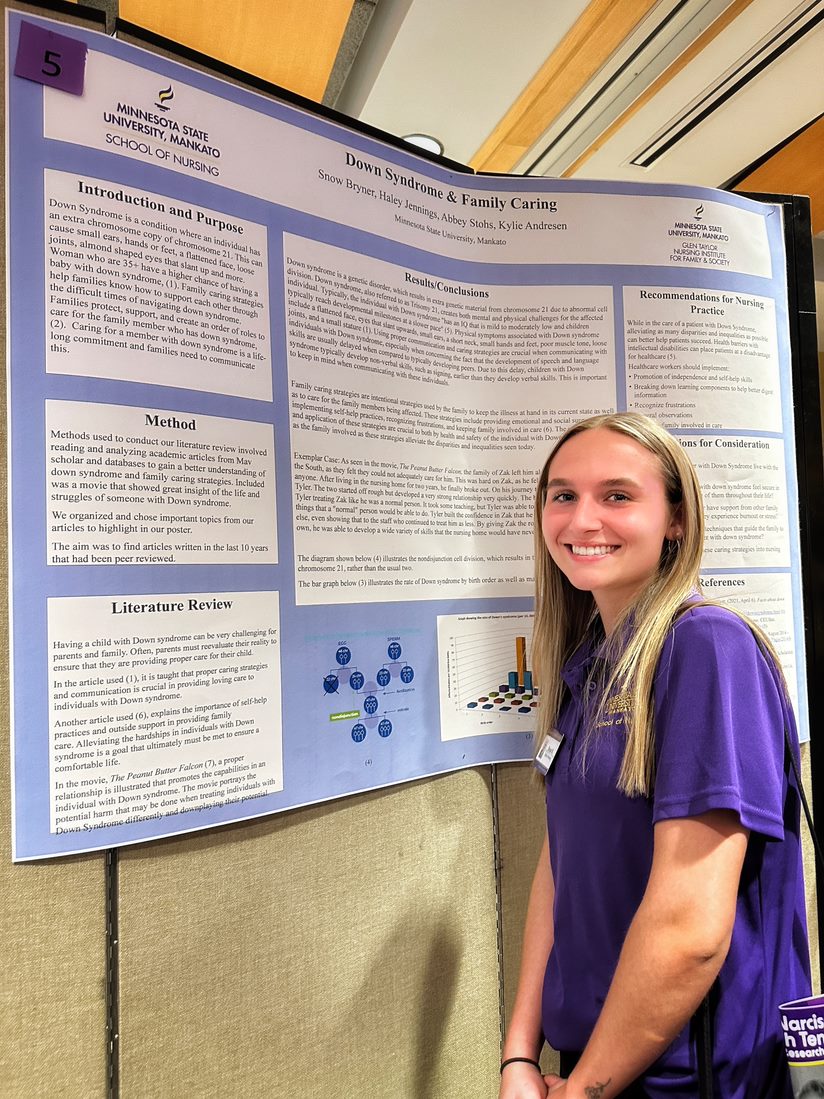Nursing student research provides real-world experiences
At the inaugural College of Allied Health and Nursing Drs. Narciso and Luth Tenorio Research Lecture Series, students who engaged in research projects finally got the chance to show off their work.
 In a packed Centennial Student Union room this spring, dozens of students stood proudly by the posters they’d spent weeks completing. The poster projects gave students the chance to engage in research and learn how that research connects them to the everyday work of nurses.
In a packed Centennial Student Union room this spring, dozens of students stood proudly by the posters they’d spent weeks completing. The poster projects gave students the chance to engage in research and learn how that research connects them to the everyday work of nurses.
Jaden Anderson worked with three other students on a project that examined the ways nurses can help families cope with the stress of cystic fibrosis. They based their project on a film called “Five Feet Apart,” which focuses on a pair of teens with cystic fibrosis. People with this disease are warned to stay at least five to six feet away from anyone who is sick; mucus in their lungs can trap harmful bacteria, and the results can be fatal.
Anderson’s project focused on the ways nurses can help the family in such cases.
“Offering to talk to the family, asking how they are doing or if they need anything,” Anderson said. “You can also refer them to either individual or group therapy to help the family talk about those health issues or any stressors going on in their life.”
Anderson said participating in the poster research event was a good experience. Conducting the research and having to present helped improve her public speaking and interpersonal communication skills.
 “Coming into school and especially into the program, I had social anxiety about speaking in front of people,” she said. “I've gotten more comfortable and confident talking in front of people, especially about nursing topics and educating others.”
“Coming into school and especially into the program, I had social anxiety about speaking in front of people,” she said. “I've gotten more comfortable and confident talking in front of people, especially about nursing topics and educating others.”
Olivia Krisik’s project was similar to Anderson’s. They watched a film called “Strain,” in which a family struggles, and tries to cope financially, when a child is diagnosed with sickle cell anemia.
Krisik’s group focused on family support.
“We also talked about the nurse-to-patient relationship and the nurse-to-family relationship about dealing with a child with sickle cell anemia and the highs and lows that they go through every day,” she said.
Krisik said the added workload of conducting the research and putting together a poster with her group came with a lot of stress. But that stress was a good thing, she said, because learning to juggle multiple tasks is a good skill to have as a nurse.
“It's stressful because it's another thing we add on to the list,” she said. “As nursing students we’re already really busy and we have finals coming up and we try to have lives outside of nursing school. So it's definitely stressful, but I also think it's nice to get out there and get that kind of experience and put ourselves out of the classroom or out of the clinical area.”
Ray Osmon said his group studied Huntington’s disease. They watched a documentary called “Why She Smiles,” which follows the inspirational story of 34-year-old Jamie Sorum, who waged a heroic battle with the disease until her death in January 2022.
 “What I connected to was that Jamie maintained a positive attitude throughout,” Osmon said. “Of course she dealt with issues with mobility, but the whole time it was her that was almost cheering up everybody else. So it was kind of interesting to see how the family reacted to her progression. … This was kind of an introduction for me. The only progressive disease I’ve seen prior to this was dementia, and for that it's usually older adults. So seeing a younger person go through something like this, and the family reacting to it, helped me understand the differences between an older patient and a younger patient and the family surrounding that.”
“What I connected to was that Jamie maintained a positive attitude throughout,” Osmon said. “Of course she dealt with issues with mobility, but the whole time it was her that was almost cheering up everybody else. So it was kind of interesting to see how the family reacted to her progression. … This was kind of an introduction for me. The only progressive disease I’ve seen prior to this was dementia, and for that it's usually older adults. So seeing a younger person go through something like this, and the family reacting to it, helped me understand the differences between an older patient and a younger patient and the family surrounding that.”
Deanna Dokken actually presented her research during fall semester. Her topic: sexual assault involving victims who are minors.
 “We dove into it because we found out that one in three girls and one in six boys will be sexually assaulted in their lifetime,” she said. “And then 30% aren't reported until later adulthood. And then, above that, probably hundreds more cases aren't exposed.”
“We dove into it because we found out that one in three girls and one in six boys will be sexually assaulted in their lifetime,” she said. “And then 30% aren't reported until later adulthood. And then, above that, probably hundreds more cases aren't exposed.”
Dokken says they’re encouraging passage of a law that would require schools to provide sexual assault education to all students, starting even as young as kindergarten.


